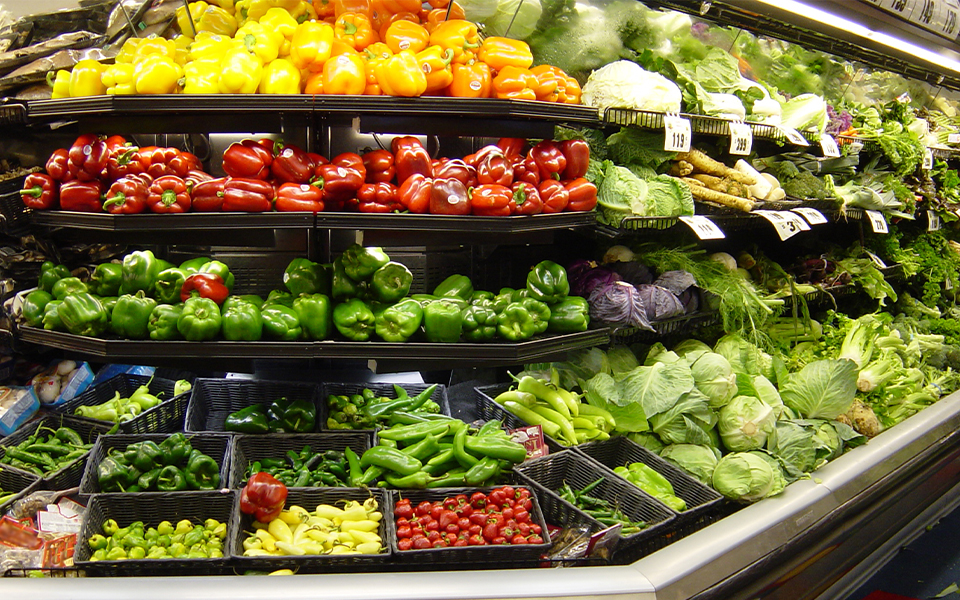*On June 1, 2023 Emerson’s Climate Technologies business became a new standalone company – Copeland. Though our name has changed, we are building on more than a century of HVACR innovation and industry leadership, and Copeland continues to offer the same products, industry stewardship, and learning opportunities you’ve grown to trust. Information found on this webpage posted before June 1, 2023 may contain our old name or branding, but you can be at ease knowing it was created with the knowledge and expertise of Copeland.
Progressive Grocer recently interviewed me about Emerson’s and the commercial refrigeration industry’s efforts to help promote the emergence of more sustainable, refrigeration technologies. The complete article can be found here.

It’s not news that supermarkets are under continuous regulatory pressure to not only lower the energy demand of their refrigeration systems, but also to make the transition to low global warming potential (GWP) and zero ozone depletion (ODP) systems. The permanent ban on R-22, long the industry standard, becomes official on January 1, 2020.
What is news is how intensely suppliers and retailers are focused on and sharing information on sustainability initiatives intended to sharply reduce the costs and impact of their refrigeration systems, both in anticipation of future regulations and to attain long-term economic and environmental sustainability.
As different manufacturers approach these issues with a variety of new technology options, the challenge becomes defining new standards for sustainable products and systems, so that the industry can converge on proven, synergistic solutions.
Taking a full system’s approach to sustainability
At Emerson, our approach to sustainability is based on a multi-faceted goal. First, sustain the environment through lower-GWP refrigerant and technology choices. Second, sustain companies financially from a total cost of ownership perspective. And third, focus on energy efficiency as a path to sustainability through forward-looking engineering and the implementation of new monitoring and control technologies, particularly Internet of Things (IoT) capabilities.
At Emerson, we take a full system approach to evaluate the sustainability of new and existing technologies in the context of multiple key selection criteria. This is part of Emerson’s “Six S’s” approach to refrigeration sustainability: simple, serviceable, secure, stable, smart and sustainable.
Exploring the potential of natural refrigerants
One area of Emerson’s focus is our work to better understand and then implement emerging natural refrigerants, such as R-744 (carbon dioxide) and R-290 (propane) for different types of applications.
Recent innovations include the development of an integrated display-case architecture. This R-290 system is designed to use one or more compressors and supporting components within cases, removing exhaust heat through a shared water loop — incorporating our expertise in R-290 compressors and our experience with stand-alone condensing units. We’ve also developed a full range of CO2 system technologies, including valves and controls for both small and large applications. For cold storage applications, our modular refrigeration units utilize both CO2 and ammonia-based refrigerant configurations.
Early adopters pave the road to the future
Over the past decade, there have been many retailers committed to testing sustainable refrigeration technologies and low-GWP refrigerants in their stores. For example, the article quoted Wayne Posa of Ahold Delhaize USA, who discussed the company’s transition from R-22, stating: “Food Lion has been committed to zero-ODP and low-GWP refrigerants for several years.”
Different manufacturers are taking different approaches to studying and applying refrigerants and technologies to reach that goal, from the use of hydrofluoroolefin (HFO) refrigerants (such as R-448A and R-450) in distributed refrigeration systems to proven CO2-based system architectures.
In the area of refrigerants — let alone technologies in development for increased energy efficiency and remote monitoring and control — the refrigeration industry continues its search for a new standard. As Brian Beitler of Coolsys, a consulting and contract engineering firm explains, “Between transcritical, ejector systems, NH3 over CO2, cascade, propane, multidistributed and hybrid gas coolers, the jury is still out.”
As we move closer to the most sustainable standard for refrigerants, Emerson continues its work on total refrigeration system sustainability — in refrigerants, energy efficiency, and control — as guided by our “Six S’s” philosophy. This work is our road map to the future.

Facility Health Score Insights Program Transforms Enterprise Maintenance
Leveraging refrigeration performance data drives food retail cost reductions. Maintaining proper...

8 proven strategies for rigorous cold chain management
Preparing for the approval and safe use of A2Ls in commercial refrigeration applications...
Protection for high-value shipments just got even better
We’re excited to announce the release of Copeland’s newest real-time tracker, the GO Real-Time...
